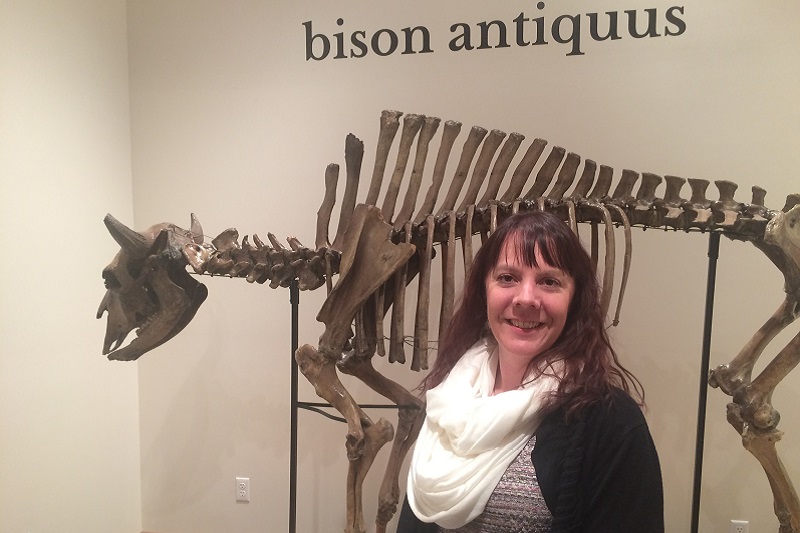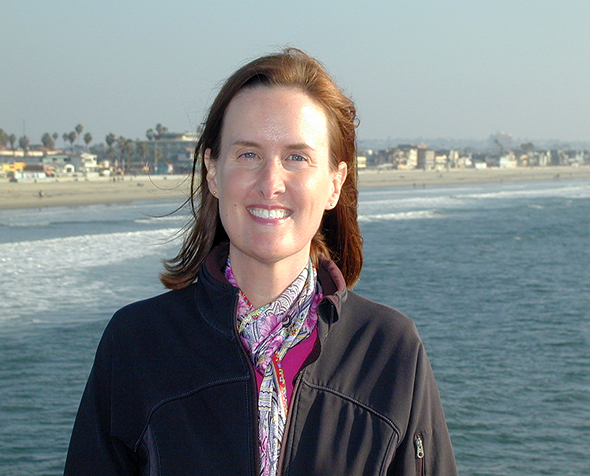Student Outreach Project Empowers Women in the Workplace
When Dr. Lindsey Feitz, the director of the gender and women’s studies program, asked her "Putting Feminism to Work" class if they’d prefer a traditional midterm or an advocacy campaign, her students jumped at the chance for community outreach.

When Dr. Lindsey Feitz, the director of the gender and women's studies program, asked her class if they'd prefer a traditional midterm or an advocacy campaign, her students jumped at the chance for community outreach.
This spring, Dr. Feitz taught "Putting Feminism to Work," a course that examines contemporary issues facing women and other minority groups in the workplace, like the pay gap, unpaid leave, racial discrimination, and sexual harassment.
Students apply these concepts to their own career pursuits, conducting research on the field they plan to work in as a way to gain insight into opportunities and challenges they'll face after college.
Kate Kelly, a senior in gender and women's studies and socio-legal studies, explains the importance of opportunities like these in the classroom.
"In this major, it often feels like we're in our own bubble of thought and the topics we discuss aren't talked about in other disciplines, despite these issues affecting every working individual."
Kelly views community outreach projects as a way to educate others who will soon be joining the workforce. Kelly and her fellow students set out to create a campaign consisting of "Did You Know" flyers and field-specific resource cards that could be distributed across campus.
"We wanted to make this information more accessible, but also inspire people to take charge and give them the ability to reach out to their representatives if they felt inspired to do so."
Another student in the class, Elizabeth Hamilton, is a double-major in gender and women's studies and religious studies with a minor in music.
Hamilton explains, "We decided to put informational posters and flyers in the women's and gender-neutral bathrooms and to create different flyers for different departments. For example, if you're in the Ritchie School of Engineering and Computer Science you can take a flyer about women in STEM, and if you're in Daniels College of Business you can take a flyer about women in business."
Feitz explains the project was student-led: "They collectively decided what specific information was the most important to share with fellow students, where their campaign would have the most visibility, and what actions young women can take to empower themselves."
The resource cards include field-specific information on the front and links to additional resources, including ways to contact representatives, on the back. They are designed to be both informative and empowering.
"Community outreach is essential for spreading awareness among our fellow college women about the issues facing women in the workplace," Hamilton explains. "If we can raise awareness and help women learn negotiating strategies, we can do our part to close the gender wage gap."
"If we want to inspire people to make change, we have to begin with education. And if we helped educate one individual, then we met our goal," Kelly adds. "Nothing is too small."
The posters and resource cards can be found in bathrooms across campus, educating individuals in STEM, business, and the liberal arts.
"The students did an amazing job and it was empowering to see them put their 'newfound knowledge' to work!" says Dr. Feitz.
For students interested in learning more about gender equity, Dr. Feitz encourages anyone to explore gender and women's studies classes, join the program's listserv, or attend GWST events.






